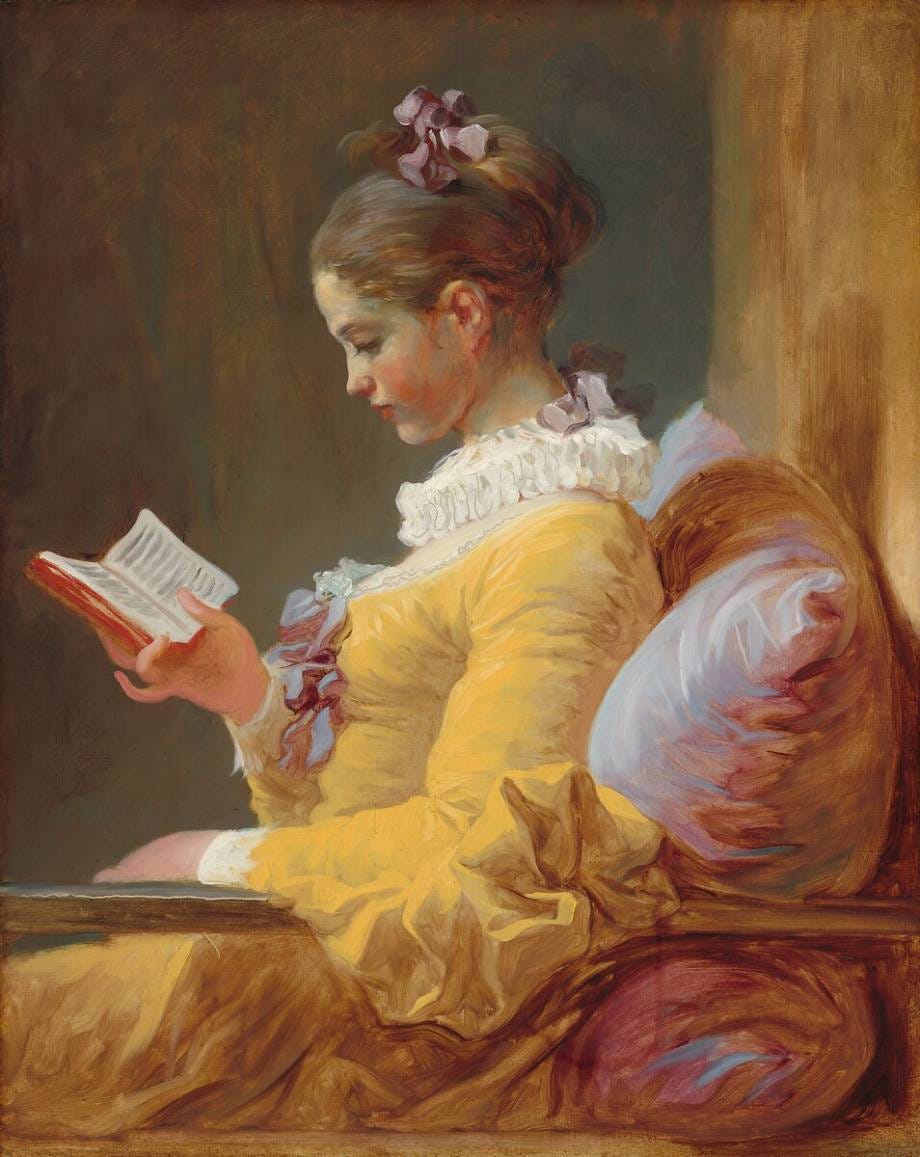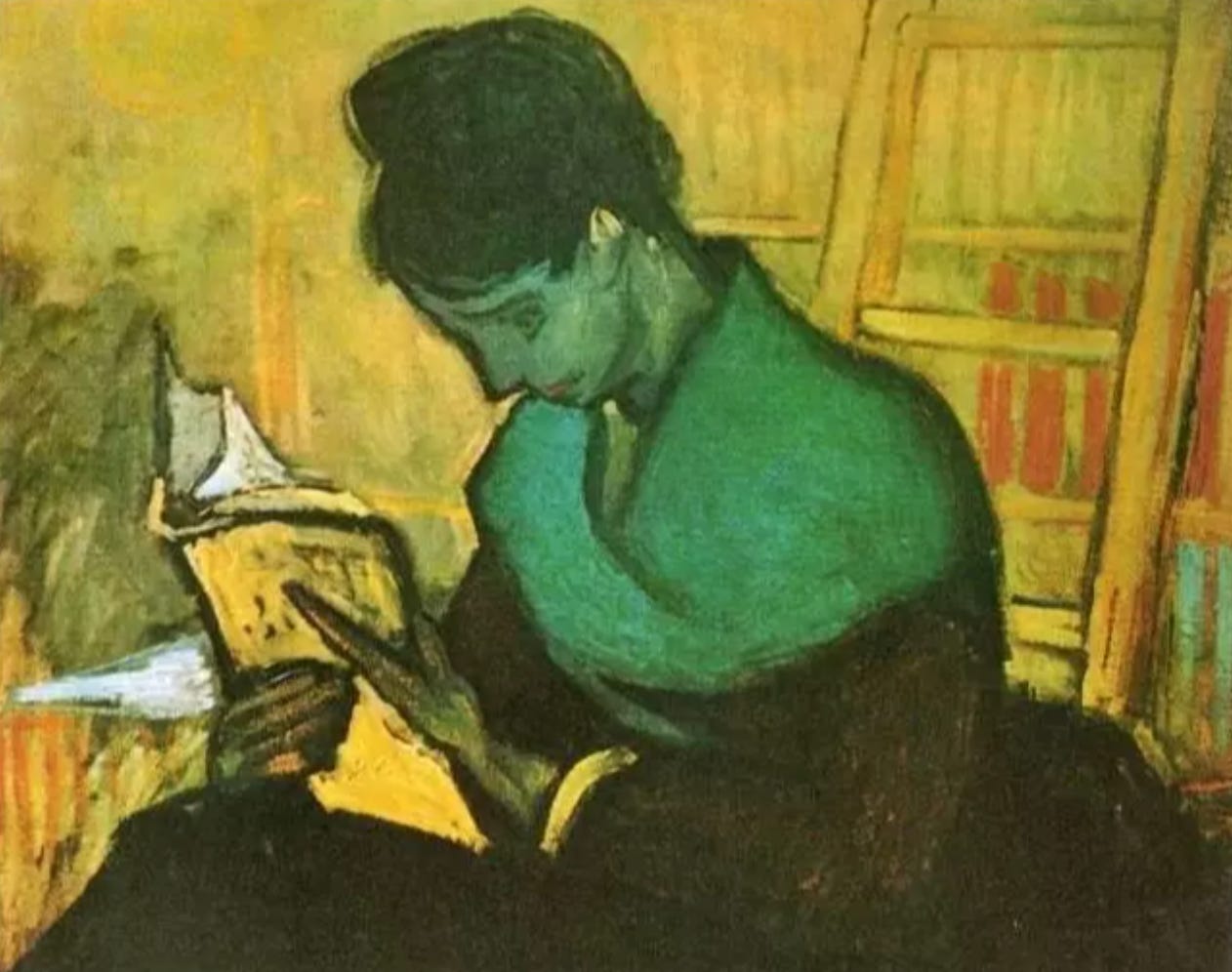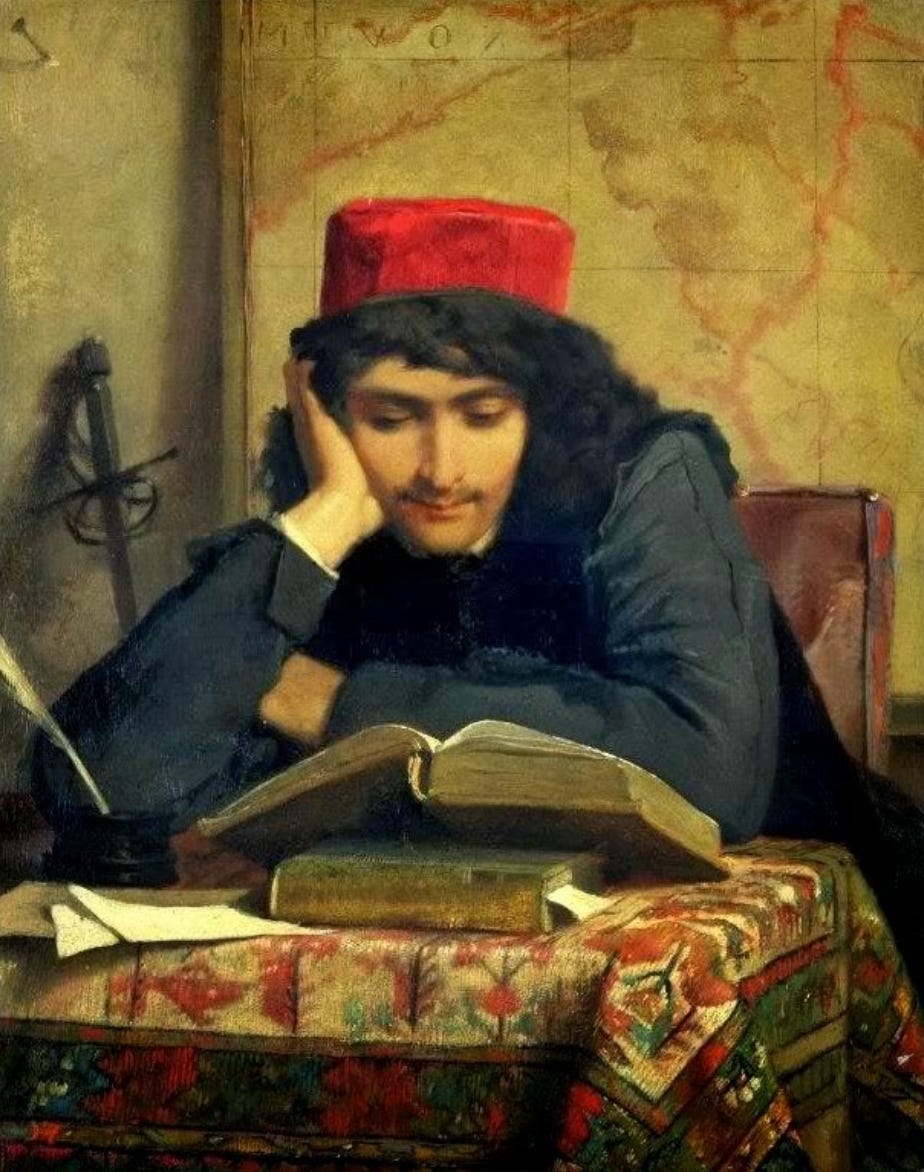Mark Twain famously said in a speech that a classic is “something that everybody wants to have read and nobody wants to read.” Classics, like all beautiful things, grow more beautifully in time. Yet they require us to apporch them intentally. One of the reasons I decided to get an M.A. in Classical Studies was that I wanted to read whole chunks of the Western canon, but I knew I needed the accountability and Biblical framework that a Seminary setting provided. I wanted to have the foundational education that the writers I looked up to had. The well they drew from was the same, and the results were clear.
The reading list at my seminary was daunting.
The Holy Bible
The Epic of Gilgamesh
Hesiod Theogony, Works and Days
Plato The Republic, Apology of Socrates, Symposium, Phaedo
Thucydides Peloponnesian War
Augustine City of God (selections), Confessions
Aristophanes Clouds, Frogs, Peace, Birds
Aeschylus Prometheus, The Oresteia
Sophocles Oedipus the King
Euripides The Bacchae, Hippolytus
Aristotle Nichomachean Ethics, Politics, Rhetoric, Poetics
Bernard of Clairveaux On the Necessity of Loving God
Boethius The Consolation of Philosophy
Aquinas Summa Theologica (selections)
Machiavelli Mandragola, The Prince
Shakespeare Henry V, King Lear, Tempest, Merchant of Venice
Luther The Freedom of the Christian
Dante The Divine Comedy
Hobbes The Leviathan
Milton Paradise Lost
Bunyan The Pilgrim’s Progress
Tocqueville Democracy in America
Madison, Hamilton, and Jay The Federalist Papers
Hawthorne The Scarlet Letter
Lincoln Speeches and Writings
Nietzsche Beyond Good and Evil, Genealogy of Morals, Twilight of the Idols
Dostoyevsky The Brothers Karamazov
C. S. Lewis The Four Loves
Reading these books forced me to read better. To read more widely and understand the other things I read in light of the great conversation I was being invited into. Here is my quick guide to being a better reader of classical works.
Decide what books you must read.
While many works are considered classics, there are a few that are foundational. They are the works that every classic work is based on. These are the foundational books you must read.
A. Ancient Foundations
Before Greece and Rome, the biblical and ancient Near Eastern works shaped Western moral imagination.
The Hebrew Bible / Old Testament – The Western tradition drew upon the Law, the Writings, and the Prophets for their ideas of morality, covenant, justice, and God.
Homeric Epics’ Predecessors (e.g., Epic of Gilgamesh) – Early hero’s journey, mortality, and friendship themes.
B. Greek Foundations
The Greeks provided the philosophical, dramatic, and poetic skeleton of Western culture.Homer – Iliad and Odyssey – Archetypes of heroism, honor, fate, and the journey.
Hesiod – Theogony and Works and Days – Early cosmology, myths, and moral instruction.
Greek Tragedians – Aeschylus (Oresteia), Sophocles (Oedipus Rex), Euripides (Medea). Themes of justice, Pride , and human frailty.
Herodotus – Histories – The beginning of Western historical inquiry.
Thucydides – History of the Peloponnesian War – Politics, realism, and human nature in war.
Plato – Dialogues (esp. Republic, Apology, Phaedo) – Philosophy, ethics, Justice, and metaphysics.
Aristotle – Nicomachean Ethics, Poetics, Politics – Logic, virtue ethics, literary theory, political thought.
C. Roman Roman Foundation
The Romans inherited Greek culture and built upon it. They translated it into law, governance, and a more pragmatic literature.
Virgil – Aeneid – Rome’s national epic; duty, piety, and destiny.
Ovid – Metamorphoses – Mythology as literary art; massive influence on medieval and Renaissance art.
Cicero – Orations & Philosophical Works – Rhetoric, law, and political philosophy.
Seneca – Moral Letters – Stoic philosophy for practical life.
Marcus Aurelius – Meditations – Stoic reflections on virtue and mortality.
D. Christian Foundation
These works reinterpret Greek and Roman ideas through the lens of Christian theology.The New Testament – especially the Gospels and Paul’s letters - is central to Western religion, ethics, and narrative. Paul read the Greeks and the Romans as well as the Ancients, and he, under divine inspiration, helped to connect what the Greeks and the Romans hinted at.
Augustine – Confessions, City of God – The synthesis of Platonic thought, Personal spirituality, and a Christian philosophy of history.
Aquinas – Summa Theologica – The synthesis of Aristotle with Christian doctrine.
E. Medieval Foundation
Medieval thought wove together Scripture, classical heritage, and emerging vernacular literature.
Dante – Divine Comedy – Theology, politics, philosophy, and poetry in one grand vision in the form of an epic poem.
Geoffrey Chaucer – The Canterbury Tales – Social portrait of medieval life.
Shakespeare – Plays & Sonnets – The deepest exploration of human character and moral conflict in English literature. Shakespeare, the ultimate poet, combined tragedy and comedy.
John Milton – Paradise Lost – Biblical epic, free will, and rebellion.
Translations matter.
When reading a translated text, the translation you choose matters. Readability and reliability are both important. Understanding what you are reading and being able to trust that the words were chosen accurately reflects the original intent. For example, Dante’s Divine Commedia was written in Italian and nearly every Italian word ends in a vowel, so ryming is much easier than in English. Some have tried to make Dante rhyme in English, but in my opinion, at the expense of readability and reliability. Choose the best books and the best translations of those books.Sustained focus is essential
When I sit down to read a classical work, I've learned that you can’t dive into a classic like a modern novel or memoir. It would take me around twenty minutes of sustained reading to lock in, and then I would read as long as I could without stopping. Once I stopped reading or got interupped I had to restart that twenty miniute clock. So find a quite space and lock and you will be glad you did.
The word look-up feature of a Kindle is really nice
I know most of you are the hold-a-book-in-your-hand kind of people. The kind that love the smell of used book stores. Do they sell that as a cologne? If so, I would buy it. One of the issues that holds people back from classics is the use of words we don’t use often. For example, Shakespeare had a working vocabulary of 20,000 to 25,000 words, but he also coined over a thousand words and used words in his day in unique, daring ways. In comparison, our working vocabulary is 10,000 to 12,000 words. When reading classics on a Kindle, I didn’t have the smell of old books, but I could look up the meaning of words by touching them. This made reading faster and increased my working vocabulary exponentially.Reading classics is a muscle you develop and a conversation you join.
Reading challenging books has helped me improve my focus and read “eaisier” books, as I've strengthened my focus muscle in my brain. A study by Natalie Phillips (MSU), using fMRI scans of participants reading Jane Austen, found that literary close reading increased blood flow across diverse brain regions—not just those tied to attention or executive functions. It even activated areas involved in spatial processing and physical activity, suggesting richer, more holistic mental engagement.
Phillips, who received her PhD in English literature at Stanford in 2010, is now an assistant professor of English at Michigan State University. She said one of the primary goals of the research is to investigate the value of studying literature. Beyond producing good writers and thinkers, she is interested in “how this training engages the brain.”
“The researchers expected to see pleasure centers activating for the relaxed reading and hypothesized that close reading, as a form of heightened attention, would create more neural activity than pleasure reading. If the ongoing analysis continues to support the initial theory, Phillips said, teaching close reading (i.e., attention to literary form) ‘could serve – quite literally – as a kind of cognitive training, teaching us to modulate our concentration and use new brain regions as we move flexibly between modes of focus’”
Reading a classic isn’t a “beach read” per se. Because the goal is different. You aren’t trying to put your mind somewhere else. You are engaging in a centuries-long conversation in that you are becoming conversant with as a result of the books you are reading.Once you read a classic, you are now ready to read the classic you just read.
My professor in Seminary used to always say, “Once you read a classic you are finaly ready to read it for the first time.” You can’t just read a classic like Plato’s Republic once. But once you have read it, each time you read it again, you will grasp it more firmly. I would emphasize that reading a whole work is always preferred, as it allows you to understand the concepts more fully within the context the author intended. So often now, colleges and High school English departments assign segments of books. They do this because the attention span of kids today is very small, and they want to whet their appetite for good books. However, in the end, this approach only frustrates them from reading anything that requires effort.What makes a classic a classic
Finally, what makes a classic a classic? In my mind, there are a few things that stand out.
1. A book is a classic if the themes are perennial and cross-cultural. They speak to the human condition. not regional or national preferences.
2. If a book stands the test of time. Does it survive the fancies and fads of generation after generation? When people ask how the books I co-authored are doing, I usually say, “They are still in print.” That has been always been the sign of relevant endurance in writing.
3. A book is a classic if it is good, true, and Beautiful. For a book to be a classic, it must be well-written. It must also be true. You can have well-written propaganda, but if it isn’t true, it won’t last. Finally, it must be beautiful. For a book to be a classic, it must stir your emotions on some level.
I realize that most people won’t read all the books mentioned. We are all busy and distracted. I would challenge you to do this. Buy one of the above-mentioned books, challenge yourself to read it, and then discuss it with a friend. We need to grow our ability to read deeply and to relate personally. Books do that. Pick one up today. Let me know which one you picked so I can cheer you on. Keep reading and keep pursuing the good, the truth, and the beautiful.





